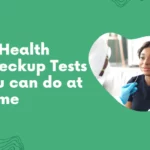While there are many factors that might cause high blood pressure, a review of studies from 2018 indicates that hereditary factors can have a 20–55 percent impact. Many of the genes that can predispose a person to high blood pressure, heart disease, or stroke tend to be shared among blood relatives. This post will discuss what to do if you have a family history of heart disease in order to maintain a long and healthy heart.
Starting with the basics.
High blood pressure is a potentially fatal illness that can harm your heart. Globally, 1 billion people are impacted by it. If unchecked, high blood pressure increases your risk of heart disease and stroke.
Heart disease is the biggest cause of death worldwide. Various heart disorders are referred to as “heart disease,” each with its own symptoms and course of action.
For some, lifestyle changes and medicine can make a massive difference in improving your health. For others, you may need surgery to help your heart bear the weight of its responsibilities. Continue reading to learn about practical steps to take if you have a family history of heart disease.
Why it is important to know one’s family history.
High blood pressure is often inherited. The risk of acquiring high blood pressure is increased for people whose parents have it, especially if both parents are affected.
If you have a blood relative (such as a mother, father, sister, or brother) who has or has had high blood pressure before the age of 60, you have a family history of high blood pressure. The greater the number of family members with high blood pressure before the age of 60, the stronger the family history of high blood pressure.
It is however important to understand that a family history of high blood pressure does not mean you will have high blood pressure but increases your chances.
There are other risk factors for heart disease and stroke which include high cholesterol, high body fat, and being more sensitive to the effects of salt on raising blood pressure. These factors can put you at risk for future heart disease and stroke, even though you may not have high blood pressure.
How to know your risks.
List your family members.
Start with those closest to you, such as your mother, father, brothers, and sisters. (If you want, you can list relatives that are more distant in relation, such as grandparents, aunts, and uncles.)
Next to each family member, tick if they have high blood pressure, heart disease, or stroke.
If you know the age they got these diseases, write that down.
If they died, write down when they died and what caused them to die.
What can I do if I have a family history of heart disease?
Monitor your blood pressure at home
Measuring your blood pressure is the only way to know whether you have high blood pressure. High blood pressure usually has no warning signs or symptoms, it builds up gradually, and many people do not know they have it.
It is also advisable that you take the tests at home. When you go to the doctor’s office to take the tests, it can be easily influenced by factors such as stress from commuting and the tension of waiting at the doctor’s office. Tests taken at home are often more relaxed and accurate.
Quit smoking
Overwhelming evidence supports the conclusion that cigarette smoking causes various adverse cardiovascular events and synergizes with hypertension and dyslipidemia to increase the risk of coronary heart disease.
Smoking causes an acute increase in blood pressure (BP) and heart rate and is associated with malignant hypertension. The nicotine found in cigarettes acts as an adrenergic agonist, mediating local and systemic catecholamine release and possibly the release of vasopressin. These chemicals damage the walls of your blood vessels, leading to atherosclerosis, where fat is laid down in your arteries walls, making the arteries narrower. It also makes your blood more likely to clot and forces your heart to work harder.
Try hard to give up smoking. If you cannot do this yourself, seek help from professionals.
Limit alcohol
Drinking too much alcohol can raise blood pressure to unhealthy levels. Having more than three drinks in one sitting temporarily raises your blood pressure, but repeated binge drinking can lead to long-term increases.
Alcohol increases blood levels of the hormone renin, which causes the blood vessels to constrict. This means that they get smaller in diameter. Renin also decreases how much fluid the body eliminates as urine. This combination of higher fluid levels in the body and smaller blood vessels increases blood pressure.
If you can stop drinking altogether, you should, especially with your increased risk of high blood pressure. Alcohol will affect your health more negatively than people without a family history of high BP.
Reduce salt (sodium) in your diet
Salt makes your body hold onto water. If you overeat, the extra water in your blood means there is extra pressure on your blood vessel walls, raising your blood pressure.
Even a small reduction of sodium in the diet can improve heart health and reduce high blood pressure by about 5 to 6 mm Hg. The effect of sodium intake on blood pressure is more pronounced in people who are genetically predisposed to high blood pressure. In general, limit sodium to about a teaspoon a day or less.
To reduce salt in the diet, prepare your meals yourself. Cooking lets you control the amount of salt in the food.
Eat a healthy diet
Drugs that lower blood pressure tends to work well. But they don’t necessarily attack the cause of the problem. And no matter how safe they are, all drugs can have some unwanted or unintended side effects.
A healthful diet is an effective first-line defense for preventing high blood pressure. It is an excellent initial treatment when blood pressure creeps into the unhealthy zone and is a perfect medication partner. Eating a diet rich in whole grains, fruits, vegetables, and low-fat dairy products and low in saturated fat and cholesterol can lower high blood pressure by up to 11 mm Hg.
Exercise regularly
Regular physical activity can lower high blood pressure significantly. It’s important to keep exercising to keep blood pressure from rising again. Aim for at least 30 minutes of moderate physical activity daily as a general goal.Exercise can also help keep elevated blood pressure from turning into high blood pressure (hypertension). Regular physical activity can bring blood pressure down to safer levels for those with hypertension.
If you do not have information about your family’s medical history, it’s advisable to play safe and assume that you have an increased risk. And if you currently have high blood pressure, you can enroll in a health management plan that provides personalized healthcare throughout the year, including regular access to tests, medical consultation, prescription supply, and quarterly health reports.
Following the pointers above will significantly help you control your blood pressure, and it will keep you safe if you have a family history of heart disease.




